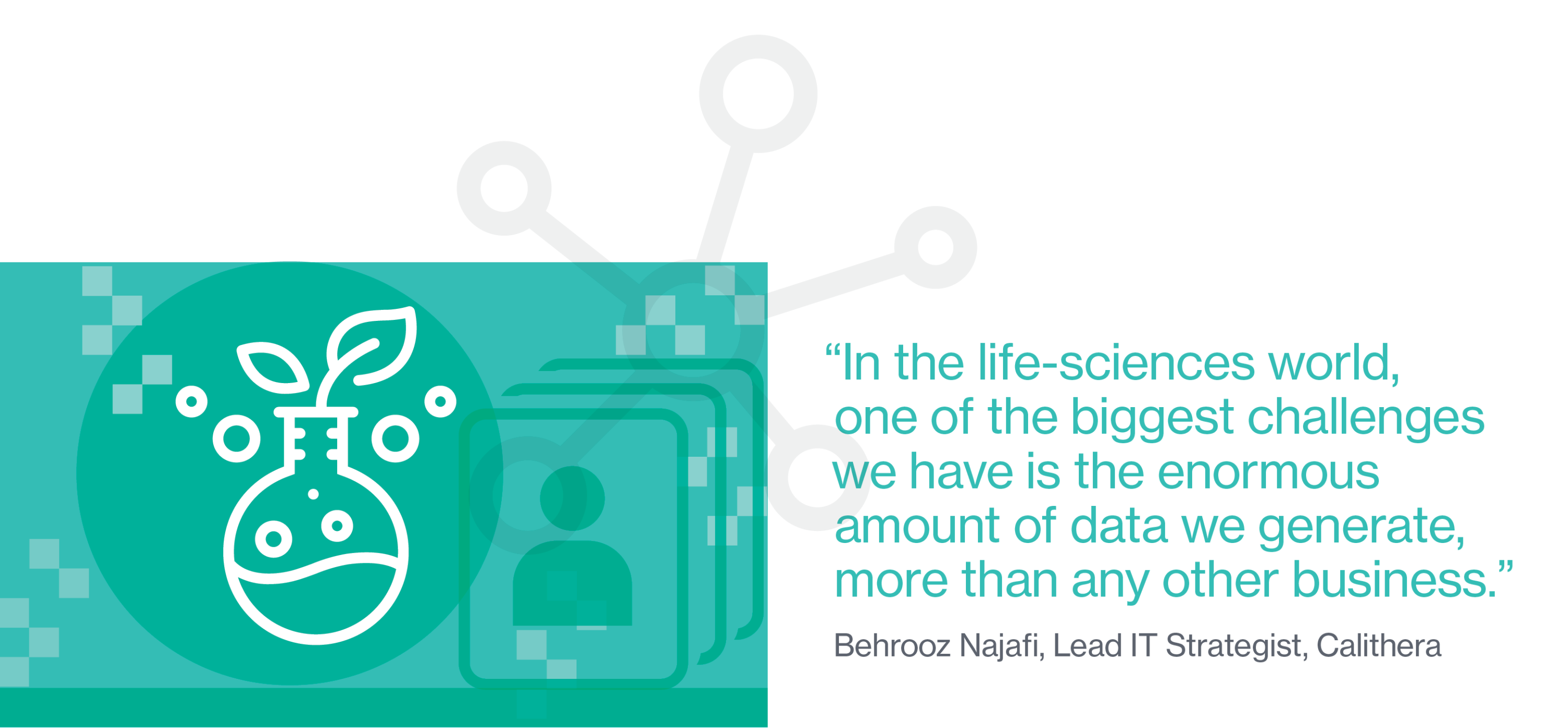Calithera conducts registered clinical trials on its products to investigate their safety, whether they are effective in patients with specific gene mutations, and how well they work in combination with other therapies. The company needs to collect detailed data on hundreds of patients. While some of his studies are at an early stage and involve only a small number of patients, others cover more than 100 research centers around the world.
“In the world of life sciences, one of the biggest challenges we have is the vast amount of data we generate, more than any other business,” said Behruz Najafi, Kalitera’s lead information technology strategist. (Najafi is also the chief information and technology director of health technology company Innovio.) Kalitera must store and manage the data, while making sure that it is easily accessible when needed, even years later. It must also meet FDA specific requirements regarding the way data is generated, stored and used.
Even something at first glance as simple as a file server upgrade must follow a strictly defined FDA protocol with many steps for testing and review. Najafi says that all this pursuit of compliance data could add 30% to 40% to a company’s overhead costs, both in direct costs and in staff hours. These are resources that could otherwise be focused on more research or other value-added activities.
Calithera circumvented much of this additional cost and significantly improved its ability to track its data by placing it in what Najafi calls a secure “storage container”, a protected area for regulated content, part of a larger document management application. in a cloud, largely driven by artificial intelligence. AI never sleeps, never gets bored and can learn to distinguish between hundreds of different types of documents and data forms.
Here’s how it works: Clinical data or patient data is entered into the system and scanned by an AI that recognizes specific characteristics that relate to accuracy, completeness, compliance, and other aspects of the data. AI can signal when there is a missing test result, or when the patient has not submitted a mandatory diary. He knows who is allowed access to certain types of data and what they are and they are not allowed to do with them. It can detect ransomware attacks and prevent them. And he can automatically document all this to the satisfaction of the FDA or another regulatory body.
“This approach removes the burden of compliance from us,” Najafi said. Once the data from its many research sites is on the platform, Kalitera knows that AI will make sure it is safe, complete and compliant, and will highlight any issues.
Managing drug detection data in line with research needs and regulatory requirements can be burdensome and costly, Najafi notes. The life sciences industry may borrow data management techniques and platforms developed for other industries, but they need to be modified to handle the levels of security and validation and detailed audit trails that are a way of life for developers. of drugs. AI can streamline these tasks by improving data security, consistency and validity – freeing up overheads for pharmaceutical companies and research organizations to apply for their core mission.

Sophisticated data management environment
Compliance with regulations helps ensure that new medicines and devices are safe and work as intended. It also protects the privacy and personal information of thousands of patients who participate in clinical trials and post-marketing studies. No matter their size – huge global conglomerates or small start-ups trying to market a product – drug developers must adhere to the same standard practices for documenting, auditing, validating and protecting any piece of information related to with a clinical trial.
When researchers conduct a double-blind study, the gold standard for proving the effectiveness of a drug, they must maintain anonymous patient information. But they should easily de-anonymize the data later, making it identifiable so that patients in the control group can receive the drug being tested, and so the company can track — sometimes for years — how the product performs in real use.
The burden of data management falls heavily on emerging and medium-sized biosciences, says Ramin Farasat, chief strategic and product director at Egnyte, a Silicon Valley software company that makes and maintains the AI data management platform used by Calithera and several hundred other scientific companies.
“This approach removes the burden of compliance from us,” Najafi said. Once the data from its many research sites is on the platform, Calithera knows that AI will make sure it is safe, complete, and compliant with all regulations, and will note any issues.
Download the full report.
This content is produced by Insights, the customized content of the MIT Technology Review. Not written by the MIT Technology Review.